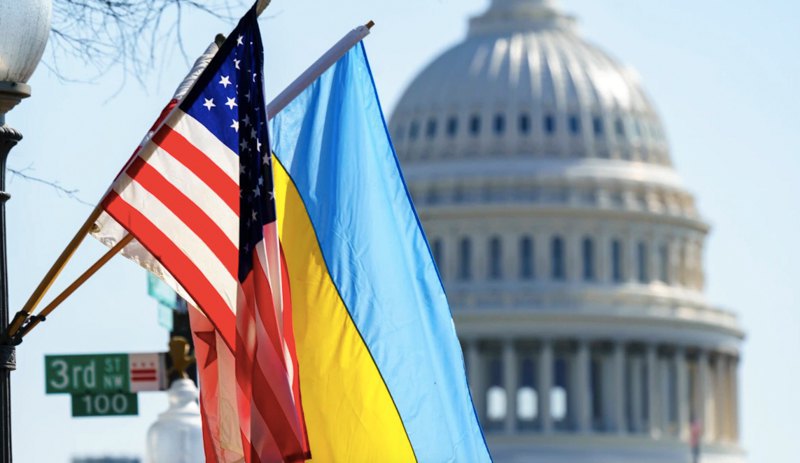
Different approaches, one Ukraine
To understand the situation, it is worth explaining what is currently happening in American political life. The country is heading towards the election of the president and a significant number of delegates - members of the House of Representatives and senators - to the US Congress. This race will be historic. It will change a lot in the United States and around the world. So the stakes are very high.
The issue of support for Ukraine is crucial during these elections, as it is directly related to the security of Americans. That is why the two main political forces in the country are speculating on this issue, trying to gain additional rating points.
The Democratic and Republican parties use the topic in different ways. The former discusses the war in the context of international challenges and as part of the struggle of democracy against autocrats. The latter try to link the issue of countering Russia to the migration problem.
That's right: helping Ukraine is tied to migrants and border security.
A logical question arises: how is Russian aggression related to the increase in funding for the US Border Patrol and mechanisms to combat illegal migration? They have nothing to do with each other. But this is an election, so Republicans are trying to connect the unconnectable. Politicians from Donald Trump's camp are especially busy with this. Why do they want to do this? They simply need to show that Biden is doing the same thing with regard to migrants as Trump; that the previous White House's policy towards illegal immigrants was correct and that we need to take care of our own safety first, and only then help everyone else, including Ukraine.
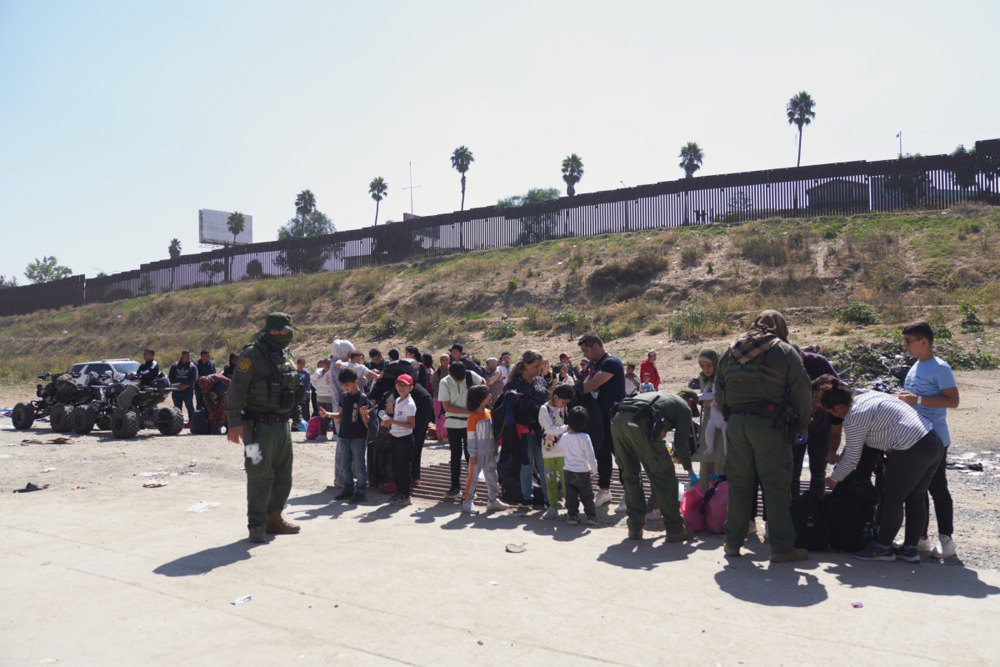
Here, the Republicans are being disingenuous, because their approach to helping Israel, Taiwan, and countering China and Iran is completely opposite - they do not link these issues to the US internal security and border issues. Why are they so concerned about Ukraine? Because Republican leader Donald Trump keeps saying that he will resolve the issue of Russia's war against Ukraine in 24 hours and bring the parties to the negotiating table to reach some kind of truce. How can this be achieved if Kyiv is unwilling to take such a step? Make it harder for Ukraine to get aid.
This approach is best symbolised by the speeches of Trump's favourite host, Tucker Carlson, who, during our delegation's visit to the US, said that Congress should not give money to corrupt Ukraine.
In parallel, there is another reality. President Biden considers the actions of Congress towards Ukraine "complete madness" and calls on the two houses to vote for his initiative, which provides for aid to Ukraine ($61.1 billion), Israel ($14.3 billion), and Taiwan, as well as additional spending on border security.
Republicans are blocking this decision. One wing says that more should be allocated to Israel, the other says that spending on border protection should be expanded and the Israeli issue should be put to a separate vote, while others want to cut spending altogether against the backdrop of an agreement on the debt ceiling. In 2022, no one would have raised these issues. But now, with barely six months to go before the US elections, this is all we hear about.

Unfortunately, the president's bill was shelved. Biden himself is in a difficult situation. First, he cannot allow a shutdown (stopping the work of government agencies due to the lack of a budget), which is what the Republicans are threatening him with. Second, the White House does not want to agree to a separate vote on Ukraine, as this will only complicate the process. Third, he is not going to change his position on the issue of assistance to Ukraine. And not only because he understands the security implications for the entire West, but also because he does not want to go down in US history as a president who lost to autocrats.
The US Democratic Party should be mentioned separately. It is partly playing its own game and trying to score points, because it is important for it not only to keep the White House, but also Congress. For example, this week, the leader of the Senate majority, Democrat Chuck Schumer, called on President Zelenskyy to speak at a closed session of senators before voting on a new bill on an aid package for Ukraine, but something went wrong and, as Schumer put it, Zelenskyy refused to speak at the last minute.
However, the briefing by US Secretary of State Antony Blinken and Pentagon chief Lloyd Austin was not just about Ukraine.
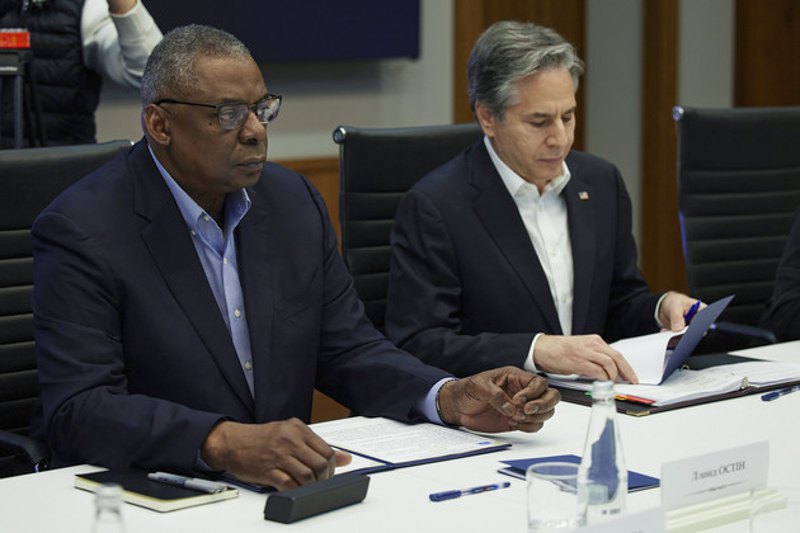
The bill proposed by the Democrats included aid for Ukraine (up to $15 billion) and Israel (up to $10.6 billion). Some money was earmarked for the security of the southern border. The trouble was that the Republicans refused to support this initiative from the beginning, as they did not like the fact that too little was being allocated to the migration system. That's why the initiative was voted down in the Senate within hours.
However, if President Zelenskyy were to address the senators before the vote on the bill, Ukraine's leadership would unwittingly become a tool in the Democratic versus Republican game. This would have destroyed the bipartisan support we still have.
Our delegation is currently in the United States: the chairman of the Verkhovna Rada, Ruslan Stefanchuk, the head of the Presidential Office, Andriy Yermak, Defence Minister Rustem Umerov and senior representatives of the Foreign Ministry. They are conducting intensive consultations, trying to convince both political camps to vote for a financial support package for Ukraine.
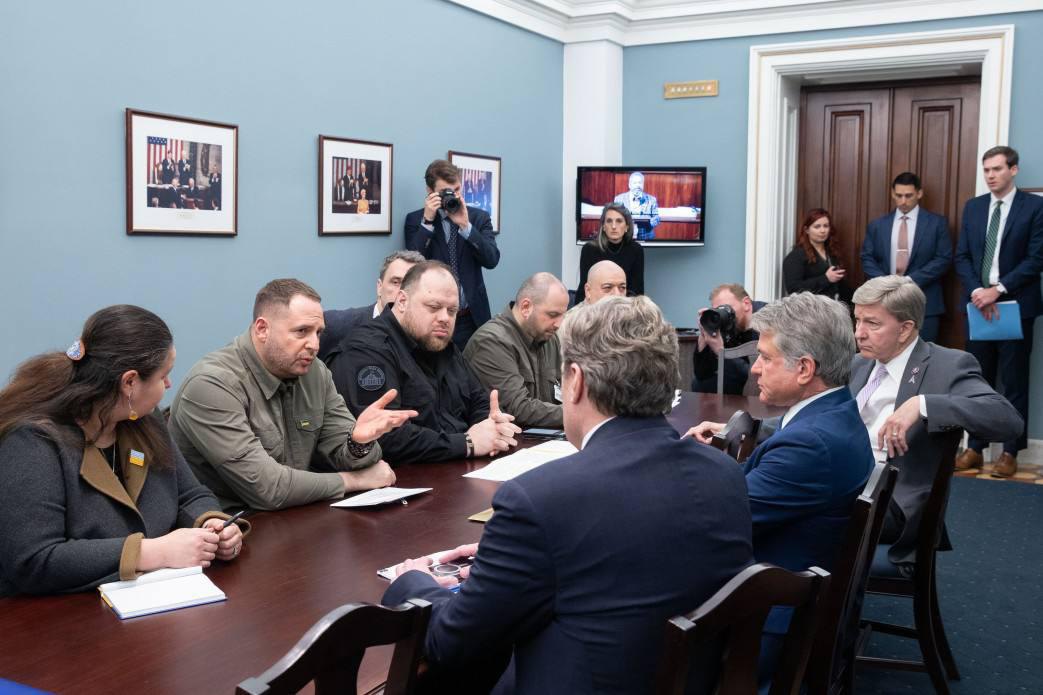
Lend-Lease option
Our delegation is addressing several issues at once in the United States: the allocation of aid by Congress, the provision and joint production of weapons, the introduction of additional sanctions against Russia, the confiscation of Russian sovereign funds, and the extension of the Lend-Lease Act to 2024.
"We want to get our four arms grant programmes, but even if we exhaust them earlier, it will be very good to have this tool as a supplementary tool," stressed Ukraine's Ambassador to the United States Oksana Markarova.
It should be noted that our country is currently receiving weapons and ammunition from the United States free of charge. Americans are not left without weapons: the government is developing defence enterprises that receive government contracts, while creating additional jobs in many states.
The Lend-Lease Act, which was voted on by Congress, provides for the loan or lease of specific weapons to Ukraine. This story was a good signal to Russia (the Soviet Union itself received money under the lend-lease scheme) that Ukraine would have strong support from the United States under any circumstances. However, the White House chose a different path: it provides us with free aid and creates its own production using the money allocated by Congress. The logic is very simple: it is better to operate with finances than with ready-made weapons, because the war is developing very dynamically, needs are growing and changing, so it would be wrong for the US administration to contract for the lease of an armoured vehicle when something else is really needed. So, they decided to keep the lease as a backup option.

Several free programmes are currently in place, the most important of which are: Ukraine Security Assistance Initiative (USAI), Foreign Military Financing (FMF) and Replenishment of U.S. Weapons Stocks (or Presidential Drawdown). Within each of these programmes, Ukraine receives some form of defence assistance.
We need the Lend-Lease as a backup option if Congress refuses to allocate money within the US military budget for these programmes. How will this work? The President and the US government will sign agreements with Ukraine on the provision of weapons for rent or leasing. So far, no one has signed such agreements. If the need arises, everything will depend on the terms and conditions that will be set out in them. Each weapon will not necessarily cost a lot of money, perhaps they will set a symbolic amount.
In any case, the law on Lend-Lease was in force in the 2022/2023 fiscal year. In October 2023, a new fiscal year began in the United States, so the act needs to be extended. A corresponding amendment was included in the discussion of the US defence budget. However, due to the difficult election political situation, the vote has been postponed.
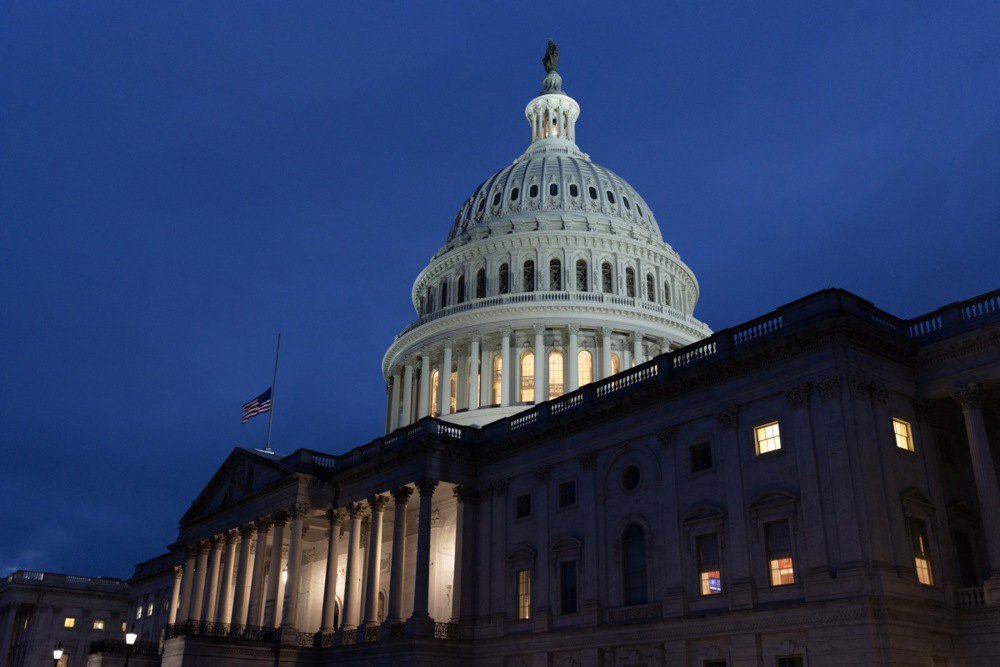
Ratings, migration and other challenges
The Republicans are speculating on the topic of Russia's war against Ukraine for a reason, they are reacting to the ratings. And most measurements of American voters' attitudes show that the issue of security (global military confrontation) is a major concern. It is in the top five, right after economic problems, migration challenges, and arms trafficking. Sociological services include here the wars between Russia and Ukraine, Israel and Hamas, and a potential battle for Taiwan. This will be the basis for the election campaigns of the parties and key presidential candidates.
On 2 November, the American public opinion research institute Gallup published sociological data on the attitude of Americans to Russia's war against Ukraine.
Currently, 41% of US citizens believe that their country is doing too much for Ukraine (in August 2022, this figure was 24%, in June 2023 - 29%). Some 61% say that US financial assistance should have limits. At the same time, 54% support Russia's full return of Ukrainian territories (a high figure, but it was 66% earlier). Some 55% of Americans want the war to end as soon as possible, and 64% believe that neither side will win.
Obviously, the most optimistic voters are Democrats, and the most sceptical are Republican supporters. But the problem is that the so-called independent voters show negative dynamics.
Republicans, in particular Trumpists, are taking advantage of this, constantly speculating on support for Ukraine. And President Zelenskyy is right to send delegations to the United States on a regular basis, to call on the Ukrainian parliament to get involved, to have discussions with congressmen, think tanks, and the American press. And our embassy in the United States is doing a very important and powerful job.
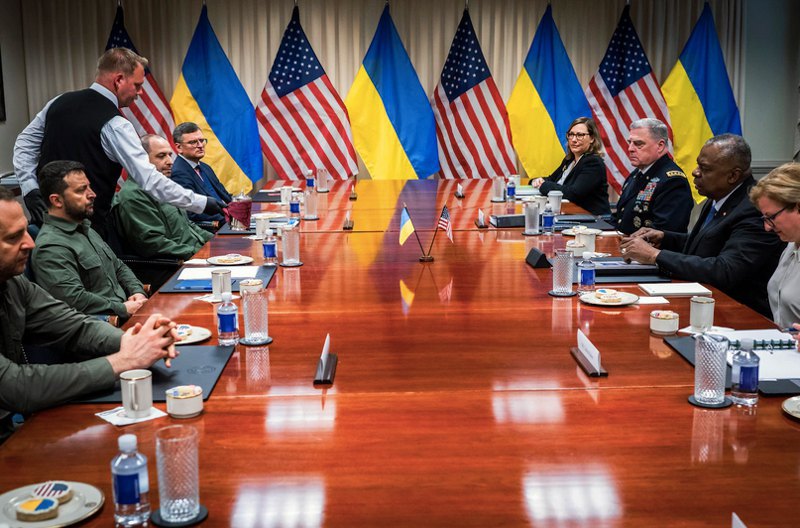
However, it is very difficult to overcome the made-up narrative of linking Ukraine's security and the US migration crisis. Republicans are successfully manipulating this. They say that we should first of all deal with the border, where things are really not so good.
According to The New York Times, over the past two years, more than 1.7 million illegal migrants have been detained, more than 2.3 million people attempted to cross the border in 2022, and over 100,000 migrants have been detained in New York City alone in the past 18 months. Meanwhile, more than 800,000 people applied for residence permits to specialised authorities last year, while only 1,500 judges and officials across the country are able to consider such requests.
The trouble is that both Republicans and Democrats understand that the United States will only develop if there is a constant influx of migrants. But elections are elections: this is the time when we can say that everything in America has been turned upside down.
Nevertheless, the next year, 2024, as far as the US is concerned, will be a difficult one for Ukraine - we will have to work hard to ensure the unity of both political camps in the country. But if the issue comes down to the wire, we can still be optimistic that both Democrats and Republicans will support Ukraine. Because no one wants to be blamed for losing to the autocrat Putin. There is definitely a consensus here.








